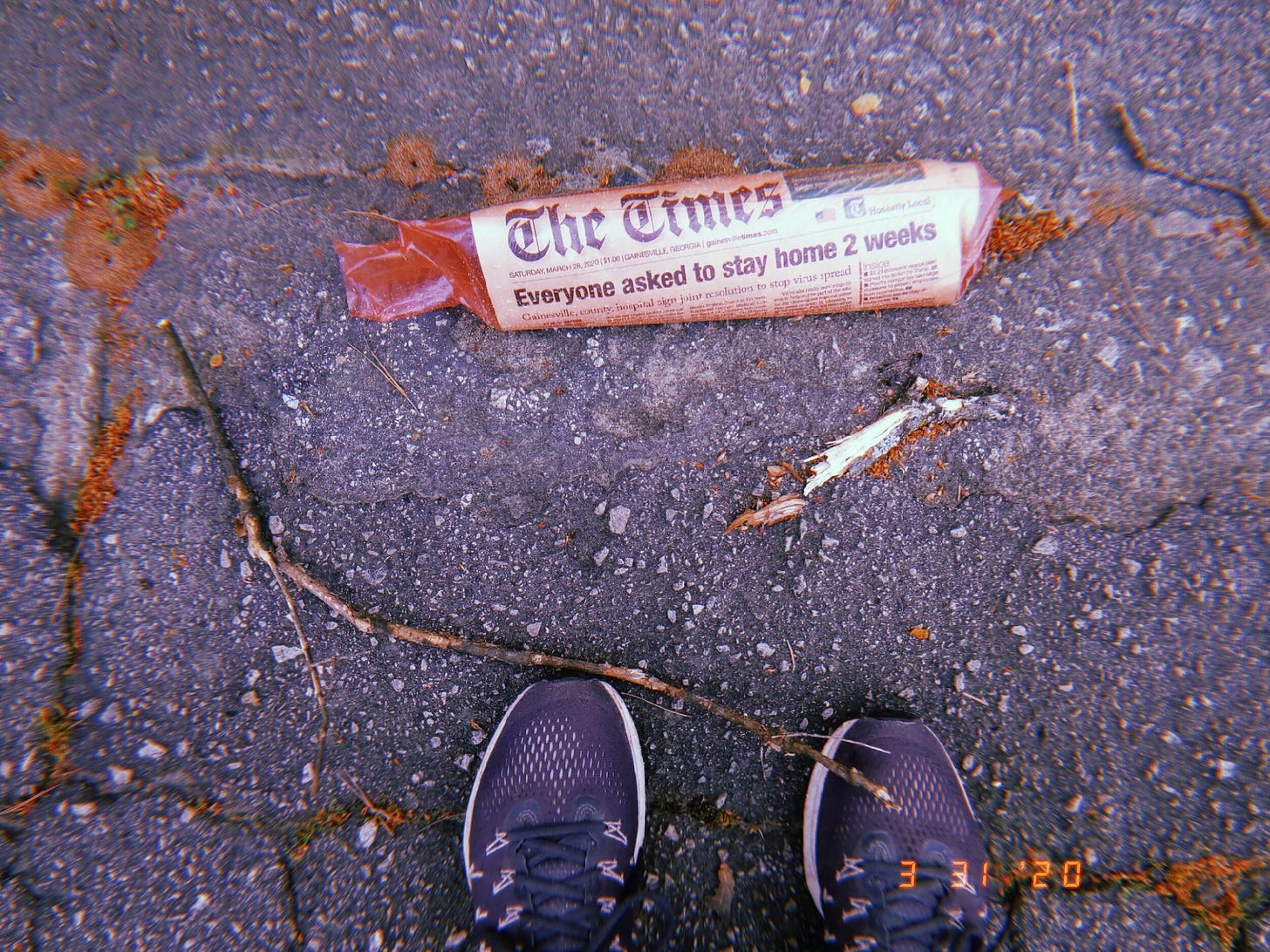The Lent We Never Asked For
Lord, Heal Us of Our Individualism
Today marks the end of the season of Lent, a 40-day event in the Christian liturgical calendar that leads up to Good Friday, when we grieve Jesus’ death on a cross, and Easter, when we celebrate His resurrection. The purpose of Lent is to practice repentance as we reflect on the brokenness and mortality of humanity, as well as practice the discipline of fasting, where we choose to refrain from certain luxuries, such as alcohol, television, social media, sugar, or other pleasures of the flesh. The period of forty days remembers the story of the temptation of Jesus and his forty days in the wilderness (chronicled in Matthew 4, Mark 1, and Luke 4).
This year for Lent, I gave up dessert. Most people know I have a severe sweet tooth, and if I were allowed, I would eat ice cream every day. For me, eating sweet things had become somewhat of an addictive habit, and I would eat dessert after a stressful day the way that some would come home and drink a few beers or smoke a few cigarettes to relax. When I was stressed, I would crave sugar. I would “reward myself” for hard days with a DQ Blizzard or I would find a reason to “celebrate” something with a baked treat. It had become something I would look to for relief, release, and comfort. So I chose to give it up for Lent.
I didn’t realize that I would be forced to give up so much more than that.
The Latin term for Lent is “Quadragesima,” which is developed from the Latin “quadraginta,” meaning “fortieth.” Interestingly, and perhaps ironically, that Latin term is also the root for the word “quarantine,” which has become a common part of our language these days. The collective quarantine has brought a plethora of cancellations and losses of varying degrees, from postponed weddings and cancelled trips to missed birthdays and weekly gatherings. But one thing that we’ve all been forced to give up for Lent (and likely beyond it) is our individualism.
Individualism by definition is the “social theory favoring freedom of action for individuals over collective or state control.” In Western cultures, we love individualism. In the US, our entire government system (though it’s very broken) is built on the concept that every citizen has the right to choose how they live, eat, work, worship, spend their money, spend their time - we have authority over our own lives. The motto of Western culture is, “I am the master of my fate, I am the captain of my soul,” as William Earnest Henley wrote.
When COVID-19 began to spread, and countries around the world began to shut things down, I felt like my autonomy and freedom was being taken away. I didn’t want anyone to tell me how to live, where I could go, or if I could travel. I wanted to do what I wanted to do. I lived in denial of the suggested guidelines to stay home and avoid gathering with people. At first, I thought it was just because I’m an extrovert - I did not like the idea of being stuck at my house seeing no one from the outside world. When the stay-at-home orders went into effect in my town, I was looking for all the loopholes - how could I still keep living the way that I wanted to live without completely breaking the rules (just bending them)? I found ways to justify going to friend’s houses (if I’m going to their house to eat a meal with them, that counts as an essential activity, right?) and maintain my general routine.
But my disdain for the “new normal” went deeper than that: the isolation guidelines and the stay-at-home orders brushed against my deep-seated cultural value of individualism.
In my individualistic worldview, I was ignoring the reality that my actions affect other people, to a larger degree than I ever realized. My choice to visit a friend’s house could set off a ripple effect that I could never have foreseen. Staying at home became the most loving thing I could do for the people around me - and if I call myself a follower of Jesus, isn’t the greatest command to love our neighbors as ourselves?
My prayer in this time has become, ‘Lord, heal me of my individualism,’ because my individualism has gotten in the way of my ability to obey the greatest command to love my neighbor.
In that, staying at home isn’t about living in fear; it’s about denying our value for individualism, and putting others before ourselves. It’s doing what Paul encourages the Philippian church to do, telling them to “look out for one another's interests, not just for your own” (Philippians 2:4 GNT). It’s choosing to sacrifice our individualistic tendencies for the sake of the collective. For our Western culture, it’s the ultimate Lenten sacrifice we could make - and it’s going to extend beyond the forty day period of Lent.
The irony is that healing us of our individualism in this time requires disconnection from community; it requires we spend time in solitude. Yet in solitude we can take a deep dive, to look at our hearts and examine our intentions; we can get in the presence of the Lord, remember we are dust, confess and repent, and ask to be cleansed - which is exactly the heart of Lent. As we collectively continue this season of quarantine, may we take the opportunity to get before the Lord in a continued posture of Lent, even after the official season has ended. And trust me, starting tomorrow, I’ll be doing that with a Blizzard in hand.


